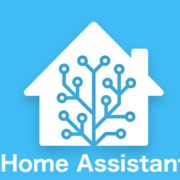What Do You Think of Home Assistant?
In the world of smart home automation, one platform that stands out for flexibility and customization is Home Assistant. But what do people really think of it, and why is it becoming the go-to solution for advanced smart home enthusiasts?
1. What is Home Assistant?
Home Assistant is an open-source home automation platform that allows you to control and integrate thousands of smart devices. Unlike closed ecosystems such as Alexa, Google Home, or Apple HomeKit, Home Assistant offers complete freedom—you can connect products from different brands and protocols into one unified system.
It can run on a Raspberry Pi, an embedded motherboard, or even a dedicated server. With a browser-based dashboard and mobile app, it provides a highly customizable interface for managing your home.
2. Why Do People Like Home Assistant?
There are several reasons why Home Assistant has earned a loyal community of users:
- High Customization – You can design dashboards, automations, and device integrations exactly how you want.
- Local Control – Unlike many cloud-based solutions, Home Assistant works locally, giving you faster performance and better privacy.
- Wide Device Compatibility – Supports Zigbee, Z-Wave, KNX, Wi-Fi, Bluetooth, and more.
- Open-Source Community – Thousands of developers contribute integrations, add-ons, and updates regularly.
- Future-Proof – Since it’s not tied to a single brand, you won’t be locked into one manufacturer’s ecosystem.
3. Challenges of Home Assistant
Of course, Home Assistant is not perfect. Some users find it:
- Complex to Set Up – It may require technical knowledge, especially when configuring YAML automations or advanced integrations.
- Maintenance Heavy – Frequent updates sometimes bring breaking changes.
- Hardware Dependent – Running on weak hardware may result in slow performance.
However, for users who want flexibility and control, these challenges are often outweighed by the benefits.
4. Home Assistant with Portworld Hardware
This is where Portworld’s embedded hardware solutions come in. Home Assistant needs a stable and reliable platform, and Portworld provides customizable Android and Linux-based smart panels and motherboards that are perfect for running such systems.
For example:
- Portworld YC-SM08P / YC-SM10P Smart Control Panels – Android-powered panels with PoE, touchscreen, and integration support.
- Portworld RK3568/RK3566 Embedded Boards – Reliable SoC-based boards that can run Linux, Debian, Ubuntu, or Buildroot, ideal for hosting Home Assistant.
- OEM/ODM Customization – Tailored hardware, branding, and integration services to match business and residential needs.
By combining Home Assistant’s powerful open-source platform with Portworld’s professional-grade hardware, users can achieve a complete, scalable, and future-proof smart home automation solution.
So, what do we think of Home Assistant? It’s one of the most powerful and flexible home automation platforms available today. While it may not be the easiest option for beginners, it offers unparalleled customization and control for those willing to invest time into setup.
With the right hardware, such as Portworld’s smart control panels and embedded motherboards, Home Assistant can truly unlock the full potential of a connected home—making automation not just convenient, but also reliable, private, and future-ready.



